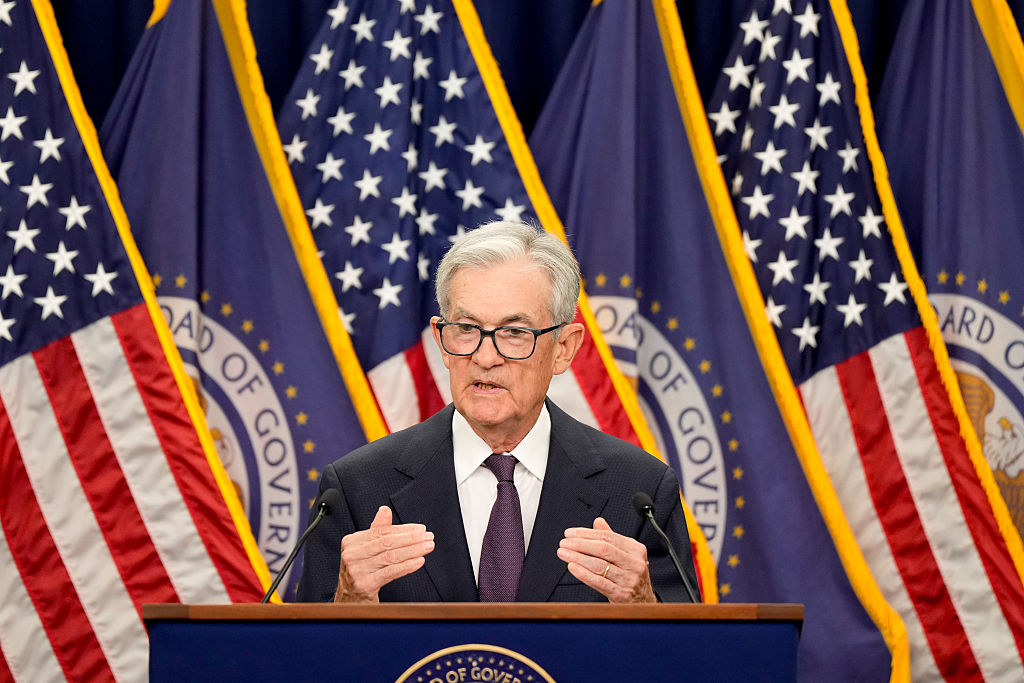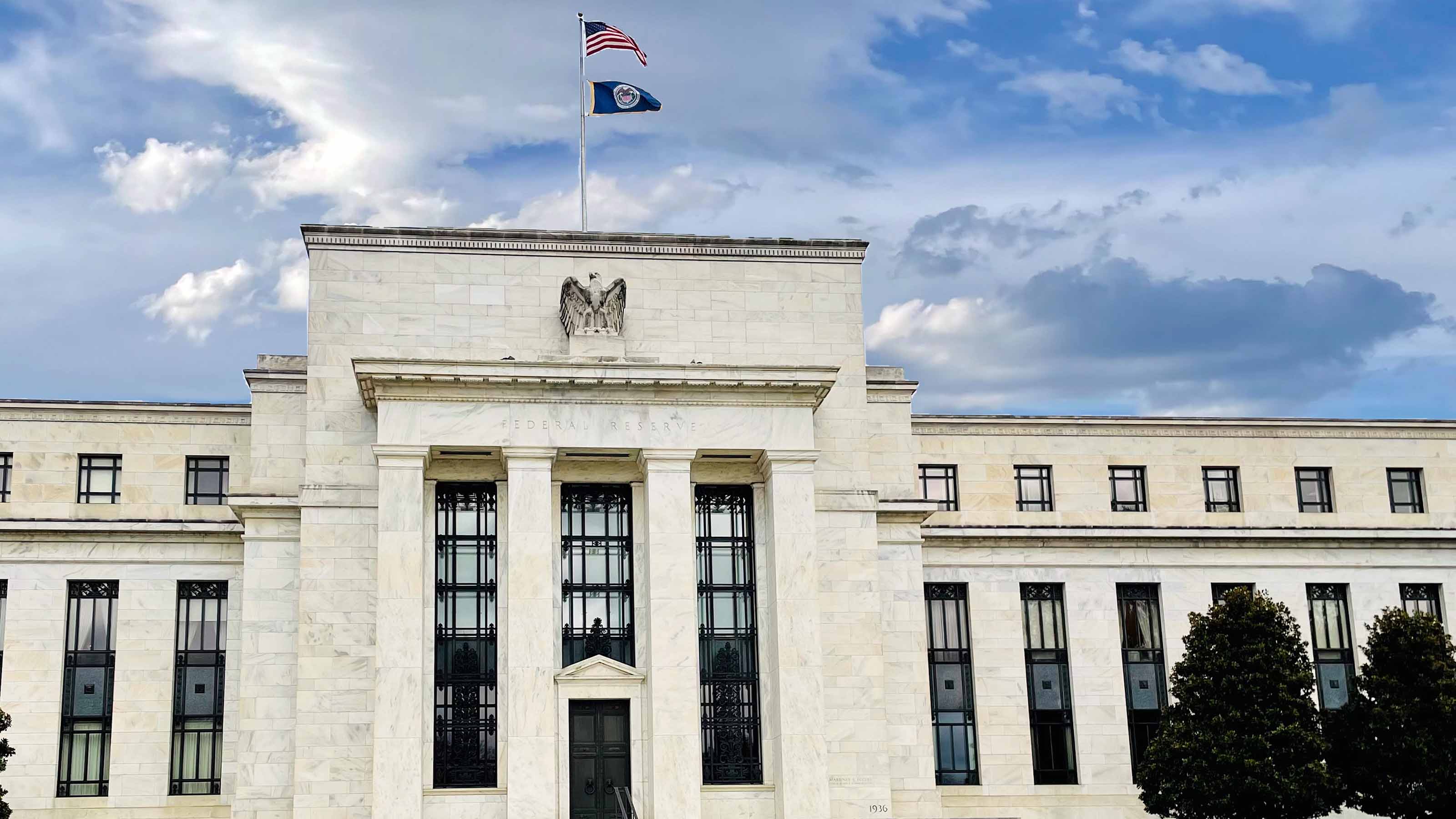When Is the Next Fed Meeting?
Markets expect interest rates to remain unchanged at the next Fed meeting.

Profit and prosper with the best of Kiplinger's advice on investing, taxes, retirement, personal finance and much more. Delivered daily. Enter your email in the box and click Sign Me Up.
You are now subscribed
Your newsletter sign-up was successful
Want to add more newsletters?

Delivered daily
Kiplinger Today
Profit and prosper with the best of Kiplinger's advice on investing, taxes, retirement, personal finance and much more delivered daily. Smart money moves start here.

Sent five days a week
Kiplinger A Step Ahead
Get practical help to make better financial decisions in your everyday life, from spending to savings on top deals.

Delivered daily
Kiplinger Closing Bell
Get today's biggest financial and investing headlines delivered to your inbox every day the U.S. stock market is open.

Sent twice a week
Kiplinger Adviser Intel
Financial pros across the country share best practices and fresh tactics to preserve and grow your wealth.

Delivered weekly
Kiplinger Tax Tips
Trim your federal and state tax bills with practical tax-planning and tax-cutting strategies.

Sent twice a week
Kiplinger Retirement Tips
Your twice-a-week guide to planning and enjoying a financially secure and richly rewarding retirement

Sent bimonthly.
Kiplinger Adviser Angle
Insights for advisers, wealth managers and other financial professionals.

Sent twice a week
Kiplinger Investing Weekly
Your twice-a-week roundup of promising stocks, funds, companies and industries you should consider, ones you should avoid, and why.

Sent weekly for six weeks
Kiplinger Invest for Retirement
Your step-by-step six-part series on how to invest for retirement, from devising a successful strategy to exactly which investments to choose.

The Federal Reserve is in a tricky spot these days as the central bank's rate-setting committee gathers for its next meeting.
On the one hand, economic growth remains solid and inflation remains above the Fed's long-term target. Price pressures could resurface as a result of President Donald Trump's tariff policies.
On the other, the jobs outlook is weakening, and too many folks are priced out of the housing market. Meanwhile, economists, strategists and investors are increasingly concerned about the central bank's independence going forward.
From just $107.88 $24.99 for Kiplinger Personal Finance
Become a smarter, better informed investor. Subscribe from just $107.88 $24.99, plus get up to 4 Special Issues

Sign up for Kiplinger’s Free Newsletters
Profit and prosper with the best of expert advice on investing, taxes, retirement, personal finance and more - straight to your e-mail.
Profit and prosper with the best of expert advice - straight to your e-mail.
December's CPI report showed that consumer inflation held steady at 2.7%, relieving pressure on the Federal Open Market Committee (FOMC), the Fed's rate-setting panel, to raise rates. We should see further cooling ahead thanks to easier comparisons.
"The 12-month inflation rate for all prices will drop in January through March, but mostly because of strong price increases a year ago raised the base for the year-over-year calculation," writes Kiplinger economist David Payne.
Sluggish hiring, meanwhile, leaves the possibility of future rate cuts on the table.
These twin pulls make the Fed likely to leave the short-term federal funds rate unchanged at its next meeting, experts says.
"Firmer economic growth may be translating into some welcome improvement in labor markets, which should be sufficient to sideline the FOMC at month's end," writes Sal Guatieri, senior economist at BMO Capital Markets. "At the same time, the peak-tariff effect on inflation could be in the rearview mirror, opening the door for more rate cuts this year."
When you consider the Fed's dual mandate against the backdrop of sticky inflation and a softening labor market, it makes sense that folks are obsessed with tracking when the next Fed meeting is coming up.
Lower interest rates today equal higher returns for equities tomorrow.
The next Fed meeting: What to expect

As you can see from the FOMC meeting calendar below, the committee meets eight times a year, or about once every six weeks. The FOMC is required to meet at least four times a year and might convene additional meetings if necessary. The convention of meeting eight times per year dates to the market stresses of 1981.
FOMC meetings last two days and conclude with the committee releasing its policy decision at 2 pm Eastern Standard Time. The Fed chief then holds a press conference at 2:30 pm. (Pro tip: As closely scrutinized as the Fed statement might be, market participants are usually even more keen on what the Fed chair has to say in the press conference.)
As for the next Fed meeting, it will begin on Tuesday, January 27, and conclude with a policy statement on Wednesday, January 28, at 2 pm EST.
As of January 20, interest rate traders assigned a 97% probability to the FOMC leaving the fed funds rate unchanged at a target range of 3.50% to 3.75%, according to CME FedWatch.
That's up from 78% a month ago. The odds of a quarter-point cut stood at 3%, down from 22% last month.
The schedule of upcoming Fed meetings is listed below, courtesy of the FOMC.
January 27-28, 2026 |
March 17-18, 2026 |
April 28-29, 2026 |
June 16-17, 2026 |
July 28-29, 2026 |
September 15-16, 2026 |
October 27-28, 2026 |
December 8-9, 2026 |
Related Content
Profit and prosper with the best of Kiplinger's advice on investing, taxes, retirement, personal finance and much more. Delivered daily. Enter your email in the box and click Sign Me Up.

Dan Burrows is Kiplinger's senior investing writer, having joined the publication full time in 2016.
A long-time financial journalist, Dan is a veteran of MarketWatch, CBS MoneyWatch, SmartMoney, InvestorPlace, DailyFinance and other tier 1 national publications. He has written for The Wall Street Journal, Bloomberg and Consumer Reports and his stories have appeared in the New York Daily News, the San Jose Mercury News and Investor's Business Daily, among many other outlets. As a senior writer at AOL's DailyFinance, Dan reported market news from the floor of the New York Stock Exchange.
Once upon a time – before his days as a financial reporter and assistant financial editor at legendary fashion trade paper Women's Wear Daily – Dan worked for Spy magazine, scribbled away at Time Inc. and contributed to Maxim magazine back when lad mags were a thing. He's also written for Esquire magazine's Dubious Achievements Awards.
In his current role at Kiplinger, Dan writes about markets and macroeconomics.
Dan holds a bachelor's degree from Oberlin College and a master's degree from Columbia University.
Disclosure: Dan does not trade individual stocks or securities. He is eternally long the U.S equity market, primarily through tax-advantaged accounts.
-
 Look Out for These Gold Bar Scams as Prices Surge
Look Out for These Gold Bar Scams as Prices SurgeFraudsters impersonating government agents are convincing victims to convert savings into gold — and handing it over in courier scams costing Americans millions.
-
 How to Turn Your 401(k) Into A Real Estate Empire
How to Turn Your 401(k) Into A Real Estate EmpireTapping your 401(k) to purchase investment properties is risky, but it could deliver valuable rental income in your golden years.
-
 My First $1 Million: Retired Nuclear Plant Supervisor, 68
My First $1 Million: Retired Nuclear Plant Supervisor, 68Ever wonder how someone who's made a million dollars or more did it? Kiplinger's My First $1 Million series uncovers the answers.
-
 My First $1 Million: Retired Nuclear Power Plant Supervisor, 68, Wisconsin
My First $1 Million: Retired Nuclear Power Plant Supervisor, 68, WisconsinEver wonder how someone who's made a million dollars or more did it? Kiplinger's My First $1 Million series uncovers the answers.
-
 Don't Bury Your Kids in Taxes: How to Position Your Investments to Help Create More Wealth for Them
Don't Bury Your Kids in Taxes: How to Position Your Investments to Help Create More Wealth for ThemTo minimize your heirs' tax burden, focus on aligning your investment account types and assets with your estate plan, and pay attention to the impact of RMDs.
-
 Are You 'Too Old' to Benefit From an Annuity?
Are You 'Too Old' to Benefit From an Annuity?Probably not, even if you're in your 70s or 80s, but it depends on your circumstances and the kind of annuity you're considering.
-
 In Your 50s and Seeing Retirement in the Distance? What You Do Now Can Make a Significant Impact
In Your 50s and Seeing Retirement in the Distance? What You Do Now Can Make a Significant ImpactThis is the perfect time to assess whether your retirement planning is on track and determine what steps you need to take if it's not.
-
 Your Retirement Isn't Set in Stone, But It Can Be a Work of Art
Your Retirement Isn't Set in Stone, But It Can Be a Work of ArtSetting and forgetting your retirement plan will make it hard to cope with life's challenges. Instead, consider redrawing and refining your plan as you go.
-
 The Bear Market Protocol: 3 Strategies to Consider in a Down Market
The Bear Market Protocol: 3 Strategies to Consider in a Down MarketThe Bear Market Protocol: 3 Strategies for a Down Market From buying the dip to strategic Roth conversions, there are several ways to use a bear market to your advantage — once you get over the fear factor.
-
 Dow Adds 1,206 Points to Top 50,000: Stock Market Today
Dow Adds 1,206 Points to Top 50,000: Stock Market TodayThe S&P 500 and Nasdaq also had strong finishes to a volatile week, with beaten-down tech stocks outperforming.
-
 No-Fault Car Insurance States and What Drivers Need to Know
No-Fault Car Insurance States and What Drivers Need to KnowA breakdown of the confusing rules around no-fault car insurance in every state where it exists.